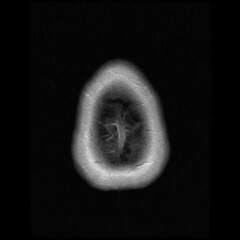Post-traumatic stress disorder (PTSD) and executive dysfunction are two separate conditions that can significantly impact a person’s mental health and ability to function in daily life. While the two conditions aren’t necessarily related, some research suggests that individuals with PTSD may also experience executive dysfunction. To understand more, let’s first take a look at each condition.
Post-Traumatic Stress Disorder
PTSD is a mental health condition that can develop after a person experiences or witnesses a traumatic event. It can affect people of all ages and backgrounds, including military personnel, survivors of sexual assault, victims of violence or natural disasters, and individuals who have been through life-threatening accidents or illnesses.
Symptoms of PTSD can be severe and long-lasting, affecting a person’s ability to function in their everyday life. Symptoms typically fall into four categories: intrusive thoughts, avoidance behaviors, negative changes in mood and cognition, and increased arousal and reactivity.
Intrusive thoughts refer to persistent and distressing memories, nightmares, or flashbacks of the traumatic event. These thoughts can feel like the person is reliving the trauma and can cause intense feelings of fear, anxiety, or panic. Avoidance behaviors may include steering clear of places, people, or activities that remind the person of the trauma. This can lead to social isolation and a sense of disconnection from others.
Negative changes in mood and cognition can include feelings of guilt or shame, a loss of interest in activities the person once enjoyed, and a negative outlook on themselves and the world around them. Increased arousal and reactivity can manifest in such symptoms as difficulty sleeping, irritability, hypervigilance, and a heightened startle response.
PTSD is diagnosed when these symptoms persist for more than one month and significantly impact a person’s day-to-day routine. It’s essential to seek professional help if you or someone you know experiences symptoms of PTSD, as early intervention can lead to better outcomes and an improved quality of life.
Treatment for PTSD typically involves a combination of psychotherapy and medication. Cognitive behavioral therapy (CBT) is a common type of psychotherapy that helps people identify and change negative thought patterns and behaviors related to the trauma. Eye movement desensitization and reprocessing (EMDR) is another type of therapy that can help individuals process traumatic memories and reduce the intensity of their emotional response.
Medications, such as selective serotonin reuptake inhibitors (SSRIs), can also be helpful in managing symptoms of PTSD, particularly in conjunction with psychotherapy.
In summary, PTSD is a mental health condition that can develop after a traumatic event. Symptoms can be severe and long-lasting, but with the right treatment, recovery is possible. It’s important to seek professional help for the treatment of PTSD.
Executive Dysfunction

Executive dysfunction is a term used to describe a set of cognitive and behavioral difficulties that can make it challenging for individuals to plan, organize, and execute everyday tasks. Executive functions are a group of mental skills that are responsible for managing complex tasks, such as decision making and multitasking.
Executive dysfunction can be caused by a variety of factors, including brain injury, developmental disorders, such as ADHD, and neurodegenerative diseases, such as Alzheimer’s. The symptoms of executive dysfunction can vary from person to person, but they typically include difficulty with organization, planning, and problem-solving.
People with executive dysfunction may struggle to keep track of time, forget appointments or deadlines, and have difficulty starting or completing tasks. They may also have trouble adapting to changes in routine or completing tasks that require multiple steps. These difficulties can lead to frustration, stress, and a sense of being overwhelmed.
One common characteristic of executive dysfunction is a lack of inhibition or impulse control. Individuals with executive dysfunction may struggle to regulate their emotions or behaviors, leading to impulsive decisions or inappropriate social responses.
There are several strategies that can help individuals with executive dysfunction manage their symptoms and improve their ability to function in everyday life. These strategies may include:
- Breaking tasks down into smaller, more manageable steps.
- Using such tools as calendars, to-do lists, and reminders to stay organized and on track.
- Creating a routine and sticking to a regular schedule.
- Seeking support from friends, family, or a mental health professional.
- Engaging in activities that promote cognitive flexibility, such as puzzles or brain games.
- Taking breaks or engaging in relaxation techniques when feeling overwhelmed or stressed.
It’s essential to note that executive dysfunction isn’t a reflection of intelligence or effort, and it can be a manageable condition if the right treatment is sought. Seeking a diagnosis and treatment from an experienced mental health professional can help individuals with executive dysfunction understand their condition and develop effective coping strategies.
With the right support and tools, individuals with difficulties caused by executive dysfunction can learn to manage their symptoms and improve their ability to function in day-to-day life.
Is There a Connection Between PTSD and Executive Dysfunction?
PTSD and executive dysfunction are two separate conditions that can significantly impact a person’s mental health and ability to function on a daily basis. Although the two conditions aren’t necessarily related, some research suggests that individuals with PTSD may also experience symptoms of executive dysfunction. For example, those with PTSD may have difficulty with attention and concentration, leading to issues with planning, organizing, and completing tasks.
Additionally, some studies suggest that pre-existing executive dysfunction may increase the risk of developing PTSD symptoms. Individuals with pre-existing executive dysfunction may be more vulnerable to the effects of trauma and may be at a higher risk of developing symptoms of PTSD. It’s essential to seek professional help if you or someone you know is experiencing symptoms of PTSD or executive dysfunction, as early intervention can lead to better outcomes in the long term.
Here at NeuroHealth Arlington Heights, Illinois, we provide a range of services for children, young adults, and their families, including help with improving communication skills. To find out more, call our friendly team at 847-321-7631 or complete the secure online form on our contact page.
